17. Seoul Station (Yeon Sang-ho, 2015)
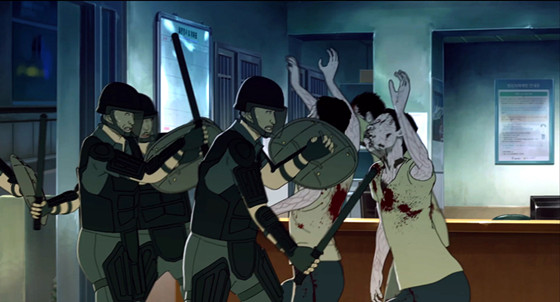
The story revolves around a zombie break-out that starts among the homeless living in Seoul station. The outbreak soon engulfs the whole city and the government declares a lockout of the whole area. In this chaos, Hae-sun, an ex-prostitute who has just broken up with her boyfriend, Ki-woong, tries to save herself with the help from some homeless people, while her boyfriend is searching for her along with her father, Suk-gyu.
Yeong Sang-ho directs a film where the key word (apart from zombies, that is) is cruelty, as is the main sentiment that permeates the animation. The treatment of the homeless man in the hospital and by the station attendants; Ki-woong’s behaviour toward Hae-sun; the government’s treatment toward the citizens, particularly as exemplified in the shooting scene near the end; and the fact the virus initially manifests among the lowest caste of society, the homeless; are all distinct examples of this sentiment.
The second sentiment that permeates the film is agony, since the scenes where the protagonists’ lives are hanging by a thread are many and quite impressive, particularly the one in the police station and the various hunts inside the train station. Sang-ho, however, managed to include a hilarious scene among all that chaos. Lastly, what ultimately steals the show is the utterly unexpected finale, where a clear comment regarding human nature is presented.
16. Dongju: The Portrait of A Poet (Lee Joon-ik, 2016)
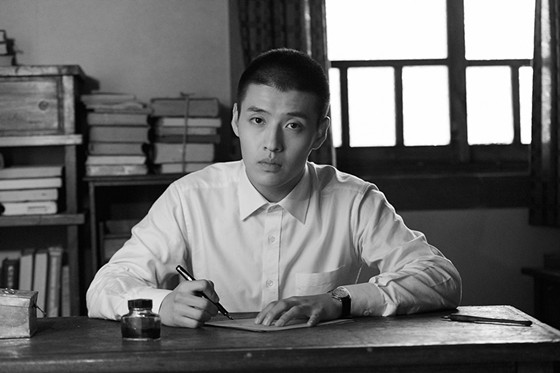
The film tells the tragic story of Yun Dong-ju and his best friend Song Mong-kyu. It starts in the 50s, during their university days where they both write poetry, but Song is the one who is recognized first. This event would shape their relationship to a large degree, with Yun adopting a place in life, somewhere below his friend, who was the definite leader of the two.
Later on, as Yun fails to publish his poems, they start a literary magazine, while Song becomes a political activist, chiefly against the Japanese Occupation. In 1942, when the Japanese pass a law forcing all lessons in Korea to be in the Japanese language, they move to Japan. They attend different universities, since Yun fails to pass the entrance exams for Tokyo University, and Song becomes one of the leaders of the Resistance. The film actually starts and ends with both of them imprisoned.
Lee Joon-ik directs a film that moves in two axes. The first one is in the present, when Yun Dong-ju is interrogated by the Japanese regarding his and Song Mong-kyu’s actions. The second axis unfolds in the past, as it describes the events that led to their arrest. In an elaborate practice, the two axes mirror each other, with the past one appearing according to the questions of the interrogation.
Furthermore, Yun’s poems, most of which are autobiographical, are also narrated according to the corresponding event appearing on screen. The synchronization of all the above is one of the film’s biggest traits and it finds its apogee in a sequence during the end, where scenes of both Yun and Song alternate in magnificent fashion. Consequently, the editing is masterful, despite the difficulty the narration presented.
15. Derailed (Lee Seong-tae, 2016)
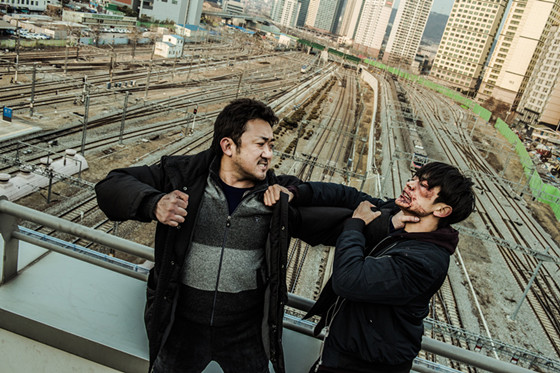
The script revolves around four teenagers (two couples actually), Jin-il, Ga-yeong, Bong-gil, and Min-kyung, who have run away from their homes, and try to survive by selling stolen goods that range from mobile phones to cars. Jin-il is the leader of the group, and the one who actually takes care of the others. Their lives are quite hard, as there are times that they do not even have money to find a place to sleep. In order to cope, they plan crimes that are even more daring.
When they stumble upon Hyung-seok, a karaoke owner who traps underage girls and uses them as prostitutes, their lives take a turn for the even worse. Their interaction ends with Ga-yeong being forced to work for him and Jin-il desperately trying to find money to free her. Furthermore, Ga-yeong’s ex-boyfriend, a true sociopath, is released from prison and is after her.
Lee Seong-tae, in his first feature film, pens and directs a movie about the cruelty and despair caused by the megalopolis, an environment where “being nice means being stupid,” as it is stated in the beginning of the film. In these harsh circumstances, the four youths try to survive and take care of each other, but they cannot find any other way except in becoming criminals.
Eventually, it is revealed that the same applies even for Hyung-seok, who has fallen victim to bad financial advice and has to succumb to his particular line of work in order to support his daughter and calm his neurotic wife. The fact that he feels that, in order to show his daughter he loves her, he has to give her money, is a clear indication of the guilt he experiences, as well as his awkwardness at expressing his feelings while retaining his thug persona outside his home.
In these circumstances, everyone is a victim but no one is a saint, since all of the main characters exploit others to survive. Lee presents clear messages; people have both good and evil inside them, and they manifest according to the circumstances. Love of any kind (for family, for friends, for a significant other) is not a pure sentiment, but one that can lead people to do harm to anyone that comes across them.
14. Bacchus Lady (Lee Jae-yong, 2016)
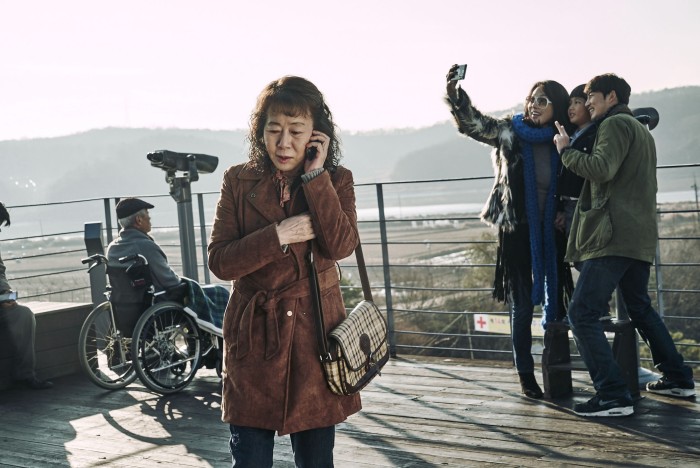
The title refers to a rather sad aspect of South Korean society – the “Bacchus Ladies”, elderly Korean prostitutes who solicit in parks and plazas in Seoul for sex in nearby motels. Their name derives from the popular Bacchus energy drink that they sell in parks where elderly men gather. The women are in their 50s, 60s, even their 80s.
The price of selling sex is about 20,000 to 30,000 won ($18-26) or even less if the man is a regular client. In a testimony, about 400 women work in Jongmyo Park in Seoul. The younger men from their 20s to 40s are also becoming their clients.
The film revolves around one of those women, So-yeong, who is 65 years old. In her rather sad life, she lives in a small complex along with a transvestite and a young man with one leg, and she tries to make ends meet by prostituting herself in parks, chiefly to elderly men. The story starts with her in a clinic where she is diagnosed with gonorrhea, in a sequence that unexpectedly ends up with her taking care of a little boy, whose mother is in jail for stabbing the doctor of the clinic.
The situation becomes more complicated, as the boy is Filipino and cannot speak Korean, and So-yeong has to occasionally take him with her when she is working.
The film follows So-yeong in her interactions, mostly with men, which include a young man who wants to shoot a documentary about the “Bacchus Ladies”, a very sick man in a hospital who desperately searches for a way to die, and another one who asks her to be with him as he commits suicide.
Lee Jae-yong pens and directs a film, which, at least in the beginning, is very hard to watch. Apart from the whole concept of the elderly prostitute, which is not very easy to witness (at least to my eyes), there are also some sex scenes between elderly people, which, although they feature almost no nudity, are rather graphic, with realistic sounds making them quite difficult to stand.
Yoon Yeo-jung is the definite star of the film as So-yeong, to the point that I do not think there is a scene in the film where she is not present. Her portrayal of a feisty woman who retains her dignity and pride, despite her profession but due to the fact that she manages to make a living by herself, makes her the film’s biggest asset. The scene where she exclaims “Don’t call me Granny, my vagina is still young,” and the one where she fights with another Bacchus Lady, are the most entertaining in the film.
13. Moebius (Kim Ki-duk, 2013)
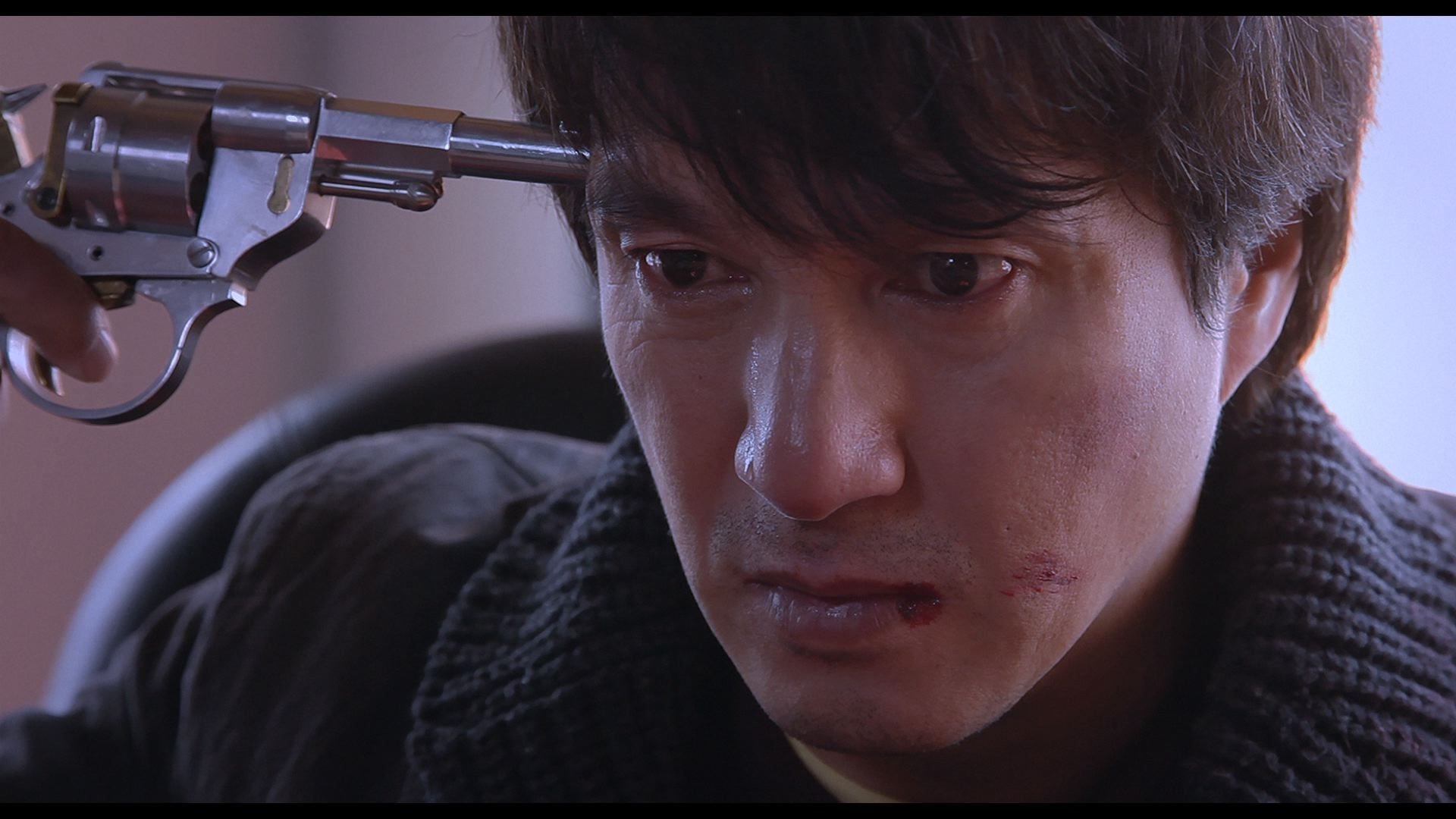
Kim Ki-duk’s most hideous production was so grotesque that the Korean Media Rating Board initially banned it completely before the director cut a number of scenes.
A spouse discovers her husband is having an affair and in order to reciprocate, she decides to castrate their only son and even eats the severed member before she runs away. The shamefaced father thus starts spending his time inquiring about penis transplants on the Internet, while the son, who is being bullied for his situation, ends up participating in a gangbang rape of his father’s former mistress.
Kim’s obvious purpose was to shock his audience and he definitely succeeded in doing so. Almost every onerous notion is present in “Moebius”, including self-torture, misogyny, and Oedipal inclinations. Adding to the sense of perversion erupting from the movie is the almost complete absence of dialogue, a tactic meant to force the spectator into focusing on the images.
12. The Truth Beneath (Lee Kyoung-mi, 2016)
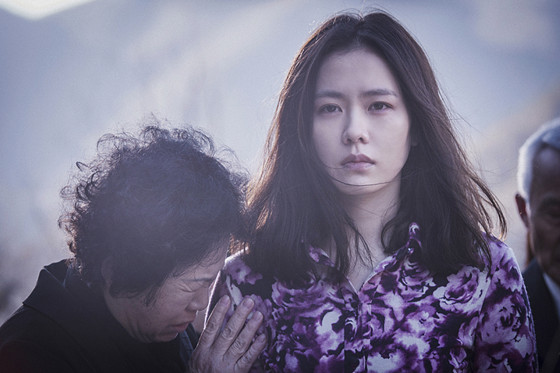
Yeon-hong is married to Jong-chan and has a teenage daughter named Min-jin, who used to be quite wild when she was even younger. Jong-chan worked as an announcer but is now preparing to run for elections as a National Assembly member, and at the same time tries to hide his daughter’s shenanigans. Yeon-hong supports her husband with all her heart, but during the first day of the campaign, Min-jin disappears.
As the days pass and the police do not find any clues, Yeon-hong becomes more and more desperate, and at the same time, infuriated with her husband and his team’s attitude, who do not seem to care about anything except the campaign. Yeon-hong begins a frantic search for her daughter, as she realizes that she did not know anything about her, and about her husband for that matter. The things she discovers and her daughter’s fate lead her toward madness, which also functions as her driving force.
Lee Kyoung-mi weaves an intricate web around the disappearance of Min-jin, which gradually reveals that everyone around the family is involved, including a friend from school, whose existence the parents ignored; a teacher; and even a member of Jong-chan’s staff. These revelations are accompanied by a number of plot twists that retain the agony, which Lee builds in a truly elaborate way for the duration of the film.
At the same time, the story presents a number of social comments regarding the cruelty of teenagers, the corruption and the immorality of politics, the relationship between parents and children, and the impact secrets can have on people. Add to the above some unexpected scenes of humor, some violence, and the clear message of “everybody lies” and you have the backbone of the movie.
11. Veteran (Ryoo Seung-wan, 2015)
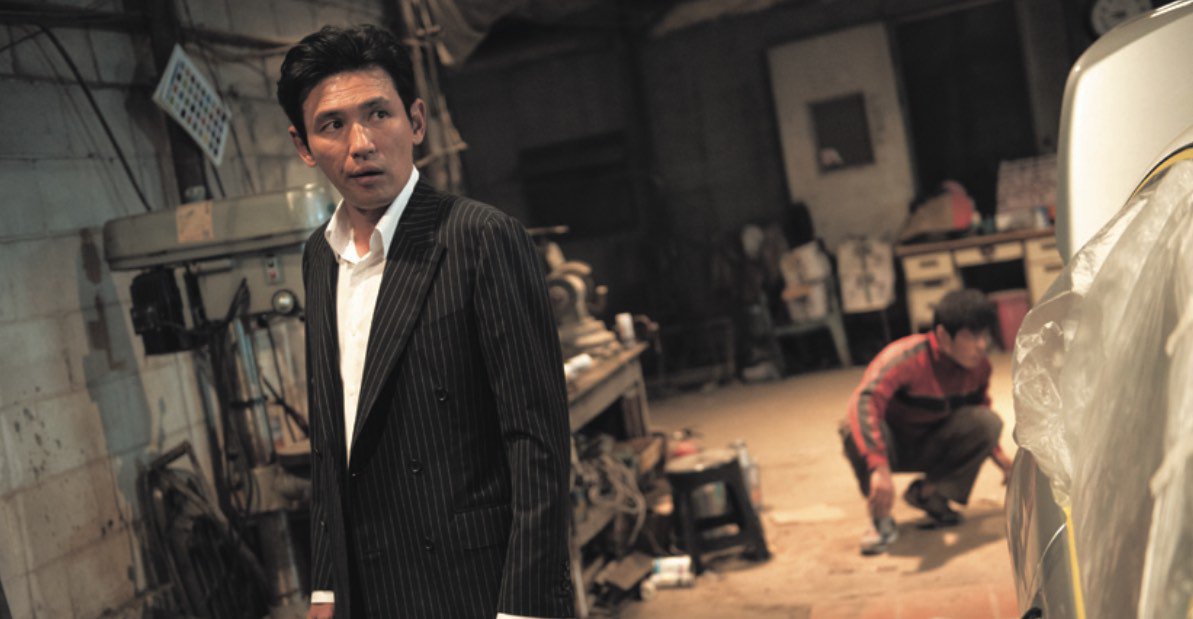
The winner of the Blue Dragon Award for Best Direction and currently the third highest grossing film in South Korean cinema history, “Veteran” is probably the most entertaining film of the list, in the fashion of the Hong Kong action comedies of the 80s.
The film starts with a rather ‘goofy’ mood as it introduces a police team that hassles a grand theft auto gang, an attempt that results in their arrest after the infield leader of the team and the film’s protagonist, Detective Seol Do-cheol, beats them up to a pulp while extracting a confession from their leader.
Subsequently, and after the arrest of a Russian gang, the film takes a turn to the dramatic, as it presents the story of Bae, a truck driver who becomes the victim of a violent and ruthless heir of a large conglomerate, in an incident that results in his alleged suicide and his treatment in a hospital while comatose.
From that point on, the film becomes a confrontation between Seol and the aforementioned heir, named Jo Tae-ho, a truly despicable human being who even his own father despises.
Ryoo Seung-wan directed a sublime action film, incorporating artfully depicted elements of all the themes and motives this kind of movie should entail, including a very fast pace, martial arts, car and human chasing, comedy, and a clear distinction between good and evil. Moreover, he incorporated the most popular theme in Korea nowadays – the corruption of the richest and its effect on public institutions, as the Police Force and the Judiciary.
The action choreographer, Jung Doo Hong, did an astonishing job in a plethora of scenes, particularly the ending one, which is utterly impressive. Hwang Jung-min is great as Seol Do-cheol, and Yoo Ah-in portrays impressively a truly onerous character as Jo Tae-ho. Of equal quality is also the performance by Oh Dal-su as Team Leader Oh, who represents the comical element in the film.
10. Ode to My Father (Yoon Je-kyoon, 2014)
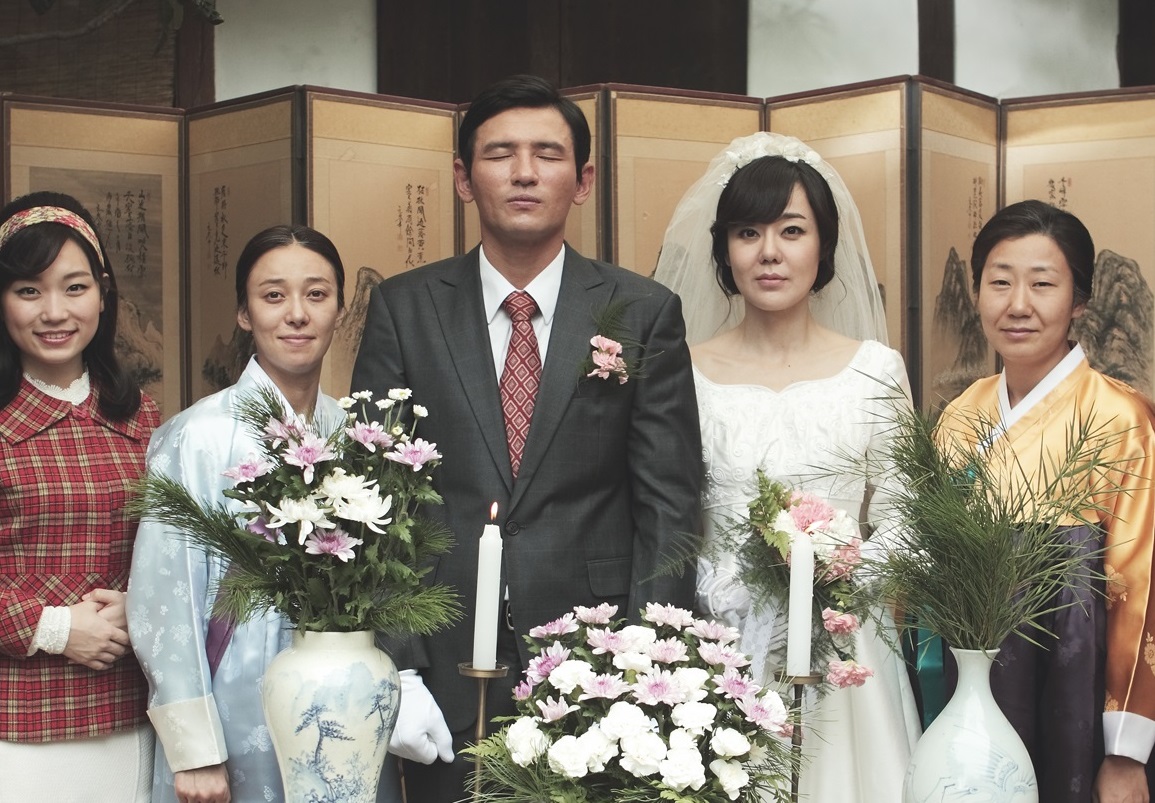
This particular movie sold more than 14 million tickets, thus becoming the second highest-grossing film in the history of Korean cinema. Moreover, it netted 10 awards at the 52nd Grand Bell Awards, including those for Best Movie, Best Director and Best Leading Actors.
The script portrays the most touching episodes in contemporary Korean history, through the life of a man named Yoon Deok-soo, explaining the various reasons for his life choices.
In that fashion, the film begins with the Hungnam evacuation of 1950 during the Korean War, and continues with the massive migration of Koreans to Germany in the 60s in order to find work, and the war in Vietnam in the 70s. It concludes in 1983, when the major broadcast stations in South Korea held TV programs with the purpose of rejoining family members that had been split during the partition of the Korean peninsula.
Respectively, Yoon loses his sister, his father becomes a victim of racism and bullying, he works as a miner in Germany and falls in love, joins the Korean Forces in Vietnam, buys his aunt’s shop from his drunken uncle, and finally discovers one of his lost relatives.
The film entails a plethora of dramatic scenes that resonated with the Koreans’ love for melodrama, thus resulting in the film’s commercial success. Furthermore, the movie included wonderful performances by its protagonists, Hwang Jung-min as Yoon Deok-soo; Oh Dal-su as his best friend, who also represents the comic element in the film; and the always gorgeous and sublime Yunjin Kim as his wife.
“Ode to My Father” is a wonderful blockbuster, in the fashion that made “Forrest Gump” an international sensation.
9. Han Gong-ju (Lee Su-jin, 2013)
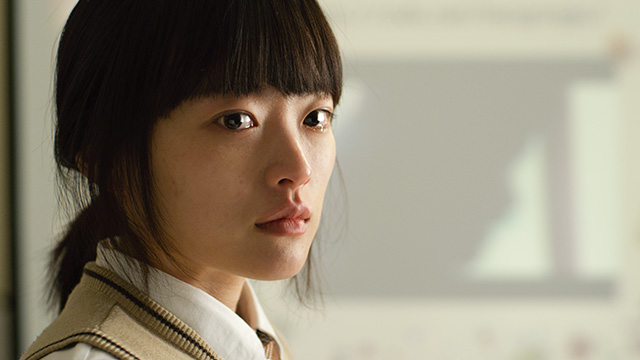
The films is based a truly horrid actual event, where 41 high school students repeatedly raped five girls over the course of 11 months. The script stays quite close to the actual facts, focusing, though, on the titular girl. Initially we watch Gong-ju after the arrest of the perpetrators, having transferred to another school and living with the family of an ex-professor of hers along with his mother, an owner of a convenience store. Her parents have abandoned her, with her mother in a new romantic relationship and her alcoholic father still living in the village where she was born.
The girl tries to keep a low profile and even manages to make her host like her, despite her initial objections about her living there. In her free time, Gong-ju learns how to swim in the local pool, where she eventually meets another girl, Eun-hee, who actually imposes her friendship onto her, making her open up a little. Even this lesser happiness, though, does not last for long.
Lee Su-jin in his debut directs and pens a powerful, touching and occasionally brutally realistic film. His strongest point is the depiction of the protagonist, with the camera following her from a very close distance, drawing the spectator deeper and deeper in her world.
The film is definitely dramatic, but Lee manages to retain a sense of measure for the duration of it, avoiding the reef of the melodrama while retaining a sensitive approach toward a very difficult subject, with most of the events being implied rather than depicted. The use of flashbacks stresses this approach, despite the fact that their use in the beginning can be somewhat disorienting, although this is remedied as the story progresses.
The film is not completely void of shocking scenes, but the majority of them are presented toward the end, in a tactic that heightens the agony, both for the result and the roots of the girl’s issues. His message is quite eloquent: the cycle of violence never closes.